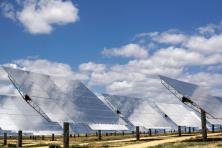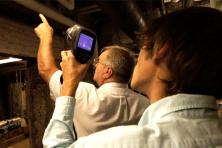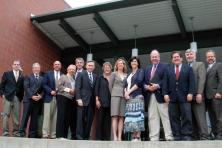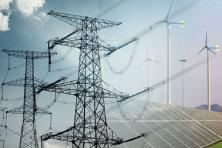Established in 2011, the King County-Cities Climate Collaboration (K4C) is a voluntary but formal partnership of King County and 13 cities forged with the idea that neighboring local governments can achieve deeper results on climate solutions by working together.
Representing 75 percent of the county’s 2 million residents, the K4C currently includes King County and the cities of Bellevue, Burien, Issaquah, Kirkland, Mercer Island, Normandy Park, Redmond, Renton, Sammamish, Seattle, Shoreline, Snoqualmie, and Tukwila.
To date, the K4C has worked together to:
- Adopt formal, shared countywide carbon emissions reduction targets of 25 percent by 2020, 50 percent by 2030, and 80 percent by 2050 (compared to a 2007 base year).
- Map out specific action commitments to reduce emissions that are tailored to King County’s emissions profile, city and county development patterns, and local government areas of influence.
- Catalyze municipal policy and code changes, joint grant funding proposals, and increased influence among other stakeholders at the state level.
- Advocate for state policy that enables local governments to achieve their clean energy goals.
- Explore the potential to partner with local utilities and businesses to jointly invest in and develop a large-scale renewable energy project, such as wind or solar.
- Share technical support and learning across K4C members.
As a result of the partnership, K4C staff and elected officials from cities large and small now have an extensive network of experts and peers on whom they can count for best practice information, lessons learned, tools, and resources.
Climate Solutions’ New Energy Cities program has been one of the K4C’s primary partners. In 2014, the K4C commissioned a carbon wedge analysis from New Energy Cities to depict what it would take for King County to cut its regional carbon emissions in half by 2030 (50x30).
This analysis formed the basis of the K4C’s joint county-city climate commitments, which are specific, time-based pathways that add up to the 50x30 goal—including a target of sourcing 90% of its electricity countywide from renewables by 2030. New Energy Cities has continued to work with the K4C on implementation of the commitments, including exploring a building energy benchmarking initiative, teeing up a countywide clean energy transition plan, and promoting electrified transportation.




